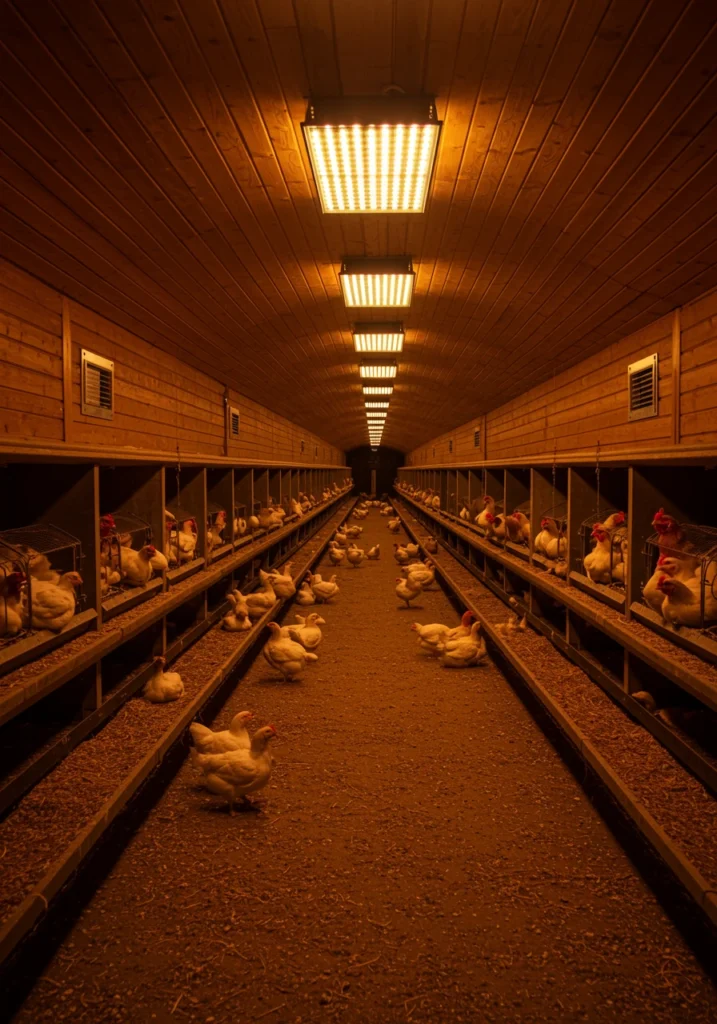A Comprehensive Guide
Raising egg-laying chickens can be a rewarding experience, whether you’re looking to enjoy fresh eggs, reduce food waste, or simply embrace a more sustainable lifestyle.
However, chickens require proper care to thrive and produce high-quality eggs. This guide will walk you through the essentials of caring for your flock, from housing and feeding to health and egg production.

Providing a Safe and Comfortable Coop.

A well-designed coop is essential for the health and safety of your chickens.
It should protect them from predators, harsh weather, and disease while offering a comfortable space to roost and lay eggs.
Space Requirements
Each chicken needs at least 2 to 3 square feet of indoor space and 8 to 10 square feet of outdoor space in a run. Overcrowding can lead to stress, aggression, and reduced egg production.
Nesting Boxes
Provide one nesting box for every 3 to 4 hens.
Line the boxes with clean, dry bedding such as straw or wood shavings to encourage egg-laying and prevent breakage.

Ventilation
Ensure the coop has proper ventilation to reduce moisture and ammonia buildup, which can harm your chickens’ respiratory health.
Predator Protection
Use sturdy materials and secure locks to keep out predators like raccoons, foxes, and hawks. Hardware cloth is more effective than chicken wire for keeping small predators at bay.

Feeding Your Chickens a Balanced Diet
A nutritious diet is key to healthy chickens and consistent egg production. Chickens require a mix of grains, protein, vitamins, and minerals to meet their dietary needs.
Layer Feed
Provide a high-quality layer feed that contains the right balance of protein (16 to 18%) and calcium to support egg production and strong eggshells.
Supplemental Calcium
Offer crushed oyster shells or limestone as a free-choice supplement to ensure your hens get enough calcium for eggshell formation.
Fresh Water
Always provide clean, fresh water. Dehydration can quickly affect egg production and overall health.


Treats and Scraps
Chickens enjoy treats like fruits, vegetables, and grains, but these should make up no more than 10% of their diet. Avoid feeding them toxic foods like chocolate, avocado, or raw potato peels.
Maintaining Health and Hygiene
Healthy chickens are productive chickens. Regular care and attention can prevent common health issues and keep your flock in top condition.
Cleanliness
Clean the coop regularly to remove droppings, old bedding, and leftover food. This helps prevent the spread of disease and pests like mites and lice.
Dust Baths
Provide a dust bath area with dry soil, sand, or wood ash. Dust baths help chickens keep their feathers clean and free of parasites.
Vaccinations and Deworming
Consult a veterinarian about vaccinations and deworming schedules to protect your flock from diseases like Marek’s disease and internal parasites.
Observation
Spend time observing your chickens daily. Look for signs of illness, such as lethargy, loss of appetite, or changes in egg production, and address issues promptly.

Encouraging Egg Production
Egg production can be influenced by factors like age, diet, and environmental conditions. To keep your hens laying consistently, consider the following.

Lighting
Chickens need about 14 to 16 hours of light per day to maintain egg production. During shorter winter days, you can use a low-wattage bulb to supplement natural light.
Stress Reduction
Stress can cause hens to stop laying. Minimize stress by maintaining a consistent routine, avoiding overcrowding, and protecting your flock from predators.
Molting
Hens naturally molt once a year, shedding old feathers and growing new ones. During this time, egg production may slow or stop. Provide extra protein to support feather regrowth.
Collecting and Storing Eggs
Regular egg collection is important to maintain cleanliness and prevent eggs from being damaged or eaten by the chickens.
Frequency
Collect eggs at least once or twice a day, especially in hot or cold weather, to prevent spoilage.
Storage
Store eggs in a cool, dry place. Unwashed eggs can be kept at room temperature for up to two weeks, as their natural bloom protects them from bacteria. Washed eggs should be refrigerated.


Caring for egg-laying chickens requires time, effort, and attention to detail, but the rewards are well worth it. By providing a safe environment, a balanced diet, and proper health care, you’ll enjoy a happy, productive flock and a steady supply of fresh, delicious eggs.
Whether you’re a seasoned chicken keeper or a beginner, these tips will help you create a thriving backyard coop.


